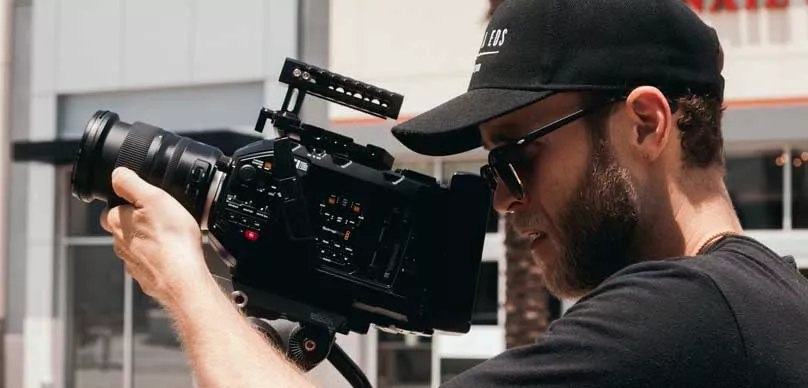Now I know this is the sexy part of the film business but stay with me here. In the late 1990s, I was asked to be involved with a film that was to be funded via a Private Placement Memorandum/an LLC.
My company was to be the worldwide sales agent for the film, which was budgeted at about $1.2m. I read the script and also reviewed the film package (writer/director/actors/producers etc) and the production budget. I did my due diligence on the film project.
I liked the project, the genre, and pace of the script, etc., so I was happy to provide revenue estimates for the film. Those estimates were for worldwide revenue potential at a low/medium/high basis, by each major territory worldwide. Doing such estimates was commonplace for me, as I have been a sales agent for independent films for many years and I know the film sales market very well both domestically and internationally.
I also knew that it was important to have at least one established actor of note that would help sell this film and there was such an actor for the project. Secondly, I knew the film had to have good production value and that the budget had to go on screen and not all to upfront fees for the producers. Based on my review I then gave permission for my name to be included in the Private Placement Memorandum for the financing of this film.
A short time later, I was presented with a Private Placement Memorandum that looked very professional and had a quality marketing presentation. This memorandum included my company as the official sales agent for the project. In other words, it was my job to sell the film and generate revenue to pay back the investors who would subscribe to this film, by funding, offering and generating profits for all concerned.
Film Funding … films can be and are funded in many different ways and over the 25 years of being in the independent film business, I have taken advantage of most of them including…
- Equity Loans/Investments.
- Negative Pickups.
- Presale Financing.
- Bank Gap Financing.
- Film Incentives – Government Assistance.
- Film Industry Assistance.
- Product Placement/Etc.
A Private Placement Memorandum (PPM) is an extremely detailed and complex document. The Private Placement Memorandum is the legal document that governs the terms and conditions of the investment made by outside investors.
The prospectus is the marketing material that film producers may use to solicit interest in the film project investment.
The primary purpose of such a document is to give the film producers the opportunity to present all potential risks to potential investors.
The PPM is supposed to protect the film producers in the event that the investment goes sour! That’s why it’s so important that the private placement memorandum is accurate, complete and meets the highest standards of full disclosure (under securities laws).
I am no attorney but believe me, the Private Placement Memorandum must be prepared by qualified attorneys who understand those complexities very well. Therefore, such a document has to be treated with great care and diligence and can have serious results for all parties involved if not correctly prepared.
Such PPMs can be a starting point for film producers considering the possibility of raising capital via a Private Placement.
Such a Private Placement Memorandum may have the following statement right up front:
“The shares offered hereby are highly speculative, and an investment in shares involves a high degree of risk and immediate and substantial dilution from the offering price. See “Risk Factors” and “Dilution.”
As you see from this statement, risk is an important ingredient in full disclosure, required by the film producers.
Issuing a PPM lets your film company sell shares to “passive investors”, (those who invest but take no active role in the production), in order to raise the money needed for the film project.
The PPM discloses all of the risks associated with the project, (including being unable to find a distributor for the film and if it never achieves commercial success). This makes it difficult for investors to claim that they were not adequately warned.
I read the film producer’s Private Placement Memorandum and became alarmed with the section on “Revenue Projections” and the section discussing the “Film Industry”, after numerous discussions with the producers, I withdrew from the film project and asked my company be removed from the PPM.
What was it that alarmed me so?
Before I go in-depth on that topic, I wish to state that the film in question went into production with funding raised via the Private Placement Memorandum and was completed and sales were made. Unfortunately, the film and the investors lost money, they felt that certain parts of the Private Placement Memorandum contents left a great deal to be desired, to the point the investors reported the film producers to the relevant authorities and after some time those producers were arrested!
Also, another Private Placement Memorandum was handed to me recently with a similar “contents” issue and I thought we should all discuss my doubts to help budding producers take care when using a Private Placement Memorandum vehicle to raise film financing.
The “contents” issue revolved around the fact that full disclosure in these legal documents must make sense and be appropriate for the film project in hand. By this I mean, that if the film project was to be invested in at an obviously low, low budget, then discussing the film business of the major studios at length in the Private Placement Memorandum, is not appropriate and may be interpreted as misleading. That is my contention!
Let us discuss further!
In the case of the Private Placement Memorandum just handed to me recently, the film is budgeted at $1.3m and is a family film. The Private Placement Memorandum is looking for equity financing of $1m via the Private Placement Memorandum.
It is important to look at the following matters when reviewing such a Private Placement Memorandum from an investor’s perspective, as they would wish to ensure they were getting full disclosure concerning their potential investment.
So let us look at the following matters to help evaluate the film funding project:
- The budget of the film.
- Film package – genre/actors/director/dept heads etc.
- Revenue projections – both domestic and foreign.
- Marketing/distribution strategy.
- Distribution deals in place if any.
- Detailed discussion on the film industry and in particular the film business pertaining to this budget level/type of film.
- Producers etc. film business credentials/credits.
The PPM we are discussing states the following and based on these representations, we can discuss from an investor’s perspective, whether the PPM truly reflects full and complete disclosure and fairly represents the risks relating to the investment proposed.
- Budget is $1.3m/ Investment needed $1m.
- Film Package: Family film/no actors or director attached.
- Revenue Projections – worldwide.
- High – $36m.
- Mid Range – $18m.
- Low-$6m.
- Distribution strategy – the film festival route and screenings for distributors/sales agents.
- No distribution deals in place.
- Discussion on the film industry – see below.
- Producers – credentials are ok but limited.
Let us discuss item number six, namely “Detailed discussion on the film industry and in particular the film business pertaining to this budget level/type of film”.
The PPM discusses the film industry at some length and uses the Price Waterhouse Coopers report as an extensive reference source, “Global Entertainment and Media Outlook: 2006-2010”, as well as other sources including the Motion Picture Association of America and the research of Nielsen Entertainment.
What concerns me about most of this data, is that it relates to major studios and theatrical releases in the USA and are major factors in the revenue stream of films.
The film to be invested in is budgeted at $1.3m. Much of the discussion in this PPM is about the theatrical release, even though it is very unlikely the film will ever actually make a theatrical release but will go to DVD and TV, which follows the usual route of a low, low budget film.
There is little if any discussion about the true world of the average low budget film made by independents in the USA, how those revenue streams happen and what the independent film business is really about…… just look to the AFM in November in Santa Monica.
Therefore I say “beware!”…. when you as a producer use a Private Placement Memorandum for raising film finance, you must ensure that you match apples with apples and that you don’t use studios or large independents as a reference for investors, when your film is a low, low independent film destined to be sold at the AFM directly to DVD and then to TV, with no theatrical release insight.
Such references in Private Placement Memorandum can lead to serious consequences for all concerned, as there may be intended to mislead investors and that is not where you wish to go… ask the producers who I dealt with many years ago.
In conclusion:
- Make sure your discussion of the film business in the Private Placement Memorandum is appropriate to the budget level and type of film you are producing. Include reference material that covers the film market and its revenue streams in a realistic manner.
- Ensure your revenue estimates are based on expected reality and not the exception and that they are conservative.
- Find an attorney who is an expert in Private Placement Memorandum and who knows the film business appropriate to your budget level and type of film product.
Producers, please have fair weather sailing in the troubled waters of film financing.
10 Legal Mistakes Indie Filmmakers Make
Independent films are often rewarded with significant awards, being appreciated for the personal artistic vision they have to offer. As an independent filmmaker, you might beam with positivity and optimism; even though your resources are limited, and the risk of failure is high, you will nevertheless pursue your dream.
From a legal perspective, some legal mistakes can put you in difficulty. As an indie filmmaker, it is essential to be aware of these mistakes and avoid them altogether. A good rule of thumb is to discuss every legal aspect with a lawyer experienced in business law.
#1 No written agreement
A verbal agreement is quickly made, and it can save a lot of time, not to mention it is 100% valid. The law states that oral agreements are enforceable, this being the reason for which these represent the first option most of the times. However, such an agreement only leaves room for problems and misunderstandings. A written contract will ensure that the rights and obligations of all involved parties are stated; moreover, there will not be any room for confusion.
#2 Copyright registration
Registering a script at the copyright office is a simple task to achieve but one that is often overlooked. However, in the situation that copyright infringement has occurred and you are looking to sue the guilty party, you will regret not having completed this registration. Many indie filmmakers make the mistake of thinking that the WGA script registration is sufficient – in reality, this is not true. The copyright office registration allows you to receive a generous amount of money in case of an infringement lawsuit (plus attorney fees).
#3 Not working out the specifics from the start
When you are interested in making an independent film, decision-making abilities are essential. If you do not work out the details from the outset, you will find yourself in a lot of conflicting situations later on. Do not shy away from difficult conversations and make sure that you have laid your terms at that moment; get everything in writing, as this will protect you from further complications.
#4 Not hiring an attorney at the right time
As an independent filmmaker, you might believe in goodwill and put your trust in the people you are collaborating. However, when it comes to the legal aspects, relying on goodwill and trustworthiness is never a good idea. To protect yourself and ensure that everything is alright, you need to hire an attorney at the right time. As soon as you have agreed to develop a script, you need legal assistance.
#5 Fighting over who controls the film
Indie filmmakers are artistic, presenting an immense potential for creating something truly unique. Nevertheless, they are not always the best when it comes to the legal matters involving the development of a script. As one puts a lot of effort into the creative process, the temptation of detaining control is quite significant. Fighting over who controls the film can hurt its development, whether we are talking about the artistic or financial aspects. In such situations, we return to the written agreement – you can easily prevent conflicts of this kind by stipulating who controls the film in the said contract.
#6 Trusting the wrong partner
Many people go into the indie business together – often, one is the creative mind, while the other handles the financial aspects. Partners end up working together for an extended period, going from one project to the other. It can happen that you will put your trust in the wrong partner; if you base your project solely on a handshake, you might end up losing everything. It is always for the best to take your time in selecting a partner, one who is trustworthy and interested in going through this journey together.
#7 Not paying the writer of the script
The scriptwriter is an essential actor in the universe of an independent filmmaker. Acting as the creative brain, he/she will ensure that you can develop the script into an excellent movie that everyone can enjoy. However, you need to keep in mind that the scriptwriter has some rights, which have to be respected at all costs. You need to pay the writer for the work done, according to the terms you have established in the first place. Otherwise, you will only expose yourself to legal complications and even lawsuits.
#8 Not giving credits to your producer
The producer is the person who will take your artistic vision and transform it into reality. He/she will work hard to ensure that you are satisfied with the development of the movie, requiring that you respect his/her rights at the same time. If you fail to give the promised credits to your producer, it is highly likely you will be sued (especially if a written agreement has been made at the beginning of the creative process).
#9 Not protecting your film
This is high on the legal mistakes list. When you complete a movie, the biggest temptation is to show it to everyone. However, you have to remember that there are a lot of people who want to make a profit out of your effort. You might find your film distributes on different websites, despite being copyrighted material. To ensure that your film will reach the target audience and gather sufficient profits, in the beginning, show it to a few people as it is possible. Discuss such aspects with your lawyer and learn about the legal measures that you can take.
#10 Not taking action against defamation
Independent filmmakers are often criticized, especially when their artistic vision does not line up with the general opinion. However, there is a fragile line between critic and defamation. Indie filmmakers are often subjected to online defamation, with the slanderous material genuinely hurting their reputation. It is always a good idea to seek out legal assistance and take action against defamation; otherwise, you will risk for your film not to reach the level of success it deserves.
These are some of the most common legal mistakes that indie filmmakers make, whether they are just beginning in this field or they have years of experience. To protect your film and reputation, it is for the best to seek out legal assistance and hire a lawyer specialized in film business law. This specialist can ensure that everything goes according to plan, without any legal hassles or risks.








